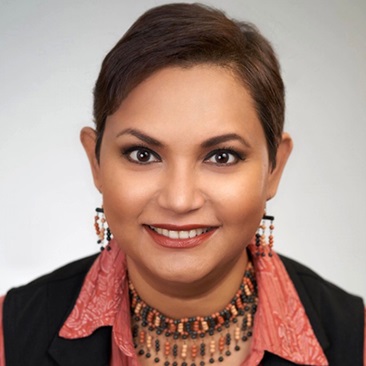Thomas Perreault Receives Fulbright Specialist Award
March 17, 2023
The professor of geography and the environment will spend part of the summer researching peatlands and helping develop a doctoral program in Chile.
Thomas Perreault, professor of geography and the environment, has been named a Fulbright Specialist, an honor that connects faculty in the U.S. with institutions worldwide.
For six weeks this summer, Perreault will work with faculty at the University of Tarapacá in Arica, northern Chile, to help them develop a new Ph.D. program in political ecology. He will also research high-altitude peatlands, also called bofedales, near the border of Bolivia.

“This is a great honor,” says Perreault. “I was invited to apply for it by my colleagues in Chile, and I’m very excited to have been selected. I’m looking forward to working with them, and I’m sure I’ll learn as much from them as they will from me.”
The Fulbright Specialist Program was established in 2001 by the U.S. Department of State and the Bureau of Educational and Cultural Exchanges to expand the traditional Fulbright Program by providing U.S. academics and professionals with the opportunity to complete short-term project-based exchanges designed by institutions around the world.
The field of political ecology, which examines the political and economic context of environmental change and conflict, is rapidly growing throughout Latin America. The Ph.D. program at the University of Tarapacá will be the first of its kind in Chile. “Like many countries in Latin America, Chile’s economy is largely based on the exploitation of natural resources like agriculture, timber and salmon, for export,” says Perreault. “The extractive nature of Chile’s economy has no doubt increased interest in the kind of analytical perspective that political ecology can bring.”
During his visit, Perreault will also begin collaborative research on the transboundary management of high-altitude peatlands, focusing on processes of water diversion for mining, commercial agriculture and urban uses and its effects on high-altitude pastoral communities on the border of Chile and Bolivia.
“Bofedales are extremely sensitive to climate change because they must remain wet year-round,” says Perreault. “They rely on glacial runoff, streams and springs. As temperatures warm and precipitation becomes less reliable, these ecosystems are highly vulnerable to drying out.”
This can negatively impact pastoral communities in the high Andes, as they rely on bofedales to pasture alpacas and llamas, he says. Water diversions for mining, agriculture and urban uses only exacerbate this situation. “My focus on bofedales will shed light on the relationship between society and the natural environment, in a context in which both are undergoing dramatic transformation,” he adds.
This is not Perreault’s first trip to Chile; prior to joining Maxwell, he served as a visiting scholar at the Latin American Summer Institute in Social Issues at the Universidad Católica del Norte, in San Pedro de Atacama, Chile.
He has also conducted extensive research on water governance and resource extraction in Bolivia. He visited Bolivia and Peru from Feb. 12 to March 18, 2023, to conduct preliminary bofedales research.
This is Perreault’s fourth Fulbright award. His first was awarded for dissertation research in Ecuador. The second and third were awarded by the Fulbright-Hays Program.
Peng Gao, professor and chair of geography and the environment, was excited to share news of the latest award with Maxwell colleagues. “This award is a result of decades of research activities in Latin America,” he says of Perreault. “It shows his vast influence in the community of Latin America studies and political ecology.”
Perreault holds two named professorships: He is the DellPlain Professor of Latin American Geography and a Laura J. and L. Douglas Meredith Professor of Teaching Excellence. He is also a senior research associate for the Center for Environmental Policy and Administration as well as the Program for the Advancement of Research on Conflict and Collaboration. He is also an advisory board member of the Program on Latin America and the Caribbean.
He received a Ph.D. from the University of Colorado in 2000.
By Jewell Bohlinger
Published in the Spring 2023 issue of the Maxwell Perspective
Related News
School News

Dec 13, 2024
Research

Dec 5, 2024

